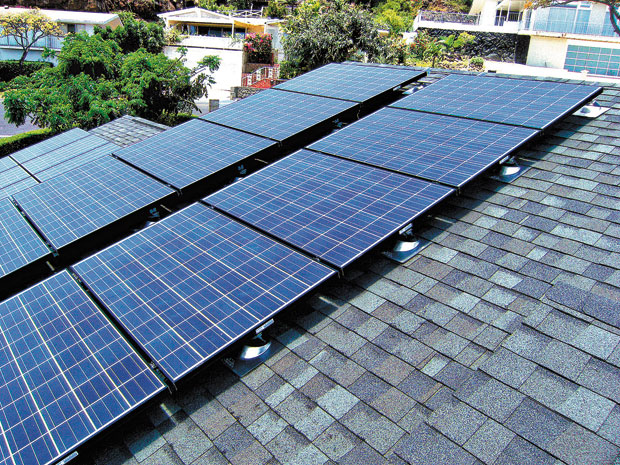Pacific Islands Solar has found that with time, consumers become more knowledgeable about solar energy. A neighbor’s home can been seen as a system is being installed, a contractor’s performance can be judged, and problems after the installation become known.
The following information is presented to help you, the consumer, by giving you knowledge to make wise decisions about solar:
• Solar installations have caused many roofs to leak. Most solar installers are not roofers, and the more penetrations into a roof, the more likely they will leak.
• Energy bills went up the last part of this past year for both solar customers and homes without solar. The reason for this increase was the lack of normal trade winds, causing homeowners to use more electricity to power fans and air conditioners. Refrigerators are also working harder to do their jobs, requiring more energy. There also has been a cost increase per kWh from HECO that is reflected in your utility bill.
• More manufacturers have been driven out of the industry as cheap Chinese modules continue to make the industry unprofitable. In order to keep pace with the low prices, many manufacturers have lowered the quality of their products to compete.
• HECO has determined that there are problems with grid saturation, and is conducting studies to determine how it will handle the problem moving forward. As a result, the number of new installations has slowed down considerably, and future costs to have a solar system connected to the grid are unknown. Initial information from the utility companies was that by March, the studies would be done and it would be known how much the utility will charge to have a system connected to a grid.
• Hybrid systems are being offered that do not have grid saturation issues. These systems generate power that is either used in the home, or stored in batteries to be used later. Since no energy is exported to the grid, a net metering agreement is not necessary with HECO. Hybrid systems are not a perfect solution to grid saturation, but they do offer some benefits including the homeowner having power even if the grid goes down.

• Manufacturer warranties are written to protect the manufacturer, not you, and are sold to the consumer as if they are a guarantee.
• Tax credits from both the state and federal governments are still in place to help finance the cost of a new solar system. Financial institutions have introduced programs that require no money down and no payments for two years, allowing homeowners to receive their tax credits first, and then apply to the loan at the end of the two years. There are savings every month in not having a utility bill that can be placed in a bank account.
• Leasing solar systems has created problems for people when they try to sell their home, as the new buyer may not wish to take over the lease payments. For some people, the systems have proven beneficial, but there have been reports of poor installation and customer service. Consumers have also reported that salesmen did not provide the option of purchasing, and they felt that their decisions were made without all the facts or options to acquire solar.
• Energy conservation can be realized in many ways, and this is where people should start the process. Solar hot water systems can save up to 30 percent of a utility bill, and these systems often pay for themselves within two years. LED lighting is also an excellent option.
• On a yearly basis, solar equipment needs to be serviced and the modules cleaned.
Pacific Islands Solar believes that there is a correct way to solve your energy needs, and it starts with keeping you, the consumer, first in the process. The company only uses the best components like Kyocera from Japan, which has passed the hardest salt-resistance testing in the industry, and has been making solar modules for more than 35 years. It also installs Apricus solar hot water systems, the most efficient solar panels on the market. Pacific Islands also provides cleaning and system inspections for all types of solar equipment.
PACIFIC ISLANDS SOLAR
contact // 841-7756
web // Pacificislandsconstruction.net
See more articles from: Pacific Islands Solar